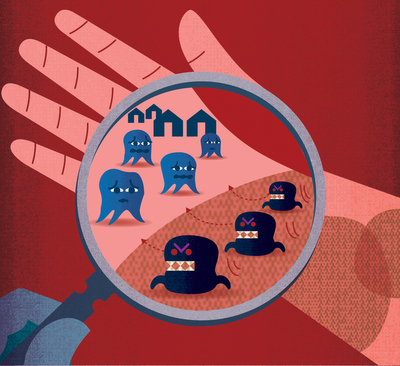현재 위치:홈 > 뉴스현황 > Press Events > Skin Microbiome Can ...
저자: 업로드:2017-06-23 조회수:
Scientists at
the Perelman School of Medicine at the University of Pennsylvania
say the use of topical antibiotics can dramatically alter communities of
bacteria that live on the skin, while the use of antiseptics has a much
smaller, less durable impact. The study ("Topical antimicrobial treatments
can elicit shifts to resident skin bacterial communities and reduce
colonization by Staphylococcus aureus competitors"), published
in Antimicrobial Agents and
Chemotherapy, was conducted in mice in the laboratory of
Elizabeth Grice, Ph.D., an assistant professor of dermatology, and reportedly
is the first to show the long-term effects of antimicrobial drugs on the skin
microbiome.

In the gut, research shows
medication that alters microbial communities can lead to complications
like Clostridium difficile,
which causes diarrhea and is the most common hospital-acquired infection. But
when it comes to the skin, the impact of these medications on bacteria strains
like S. aureus, the most
common cause of skin infections, is still largely unstudied.
"We know antibiotics and antiseptics can be effective in stopping the growth of certain bacteria, but we wanted to know about the larger impact these treatments can have on the resident microbial communities on the skin," said the study's lead author, Adam J. SanMiguel, Ph.D., a researcher in the Grice Laboratory.
Researchers treated the skin of hairless mice with a variety of antibiotics, including a narrowly targeted mupirocin ointment and a broadly applicable triple-antibiotic ointment (TAO) containing bacitracin, neomycin, and polymyxin B. All of the antibiotics changed the makeup of the microbial communities, and, in a key finding of the study, the impact of that change lasted for days after treatment stopped.
"The problem in this case isn't antibiotic resistance, but instead, how long the disruption of the skin microbiomes continues," Dr. SanMiguel said. "That disruption opens the door for colonization by an unwanted strain."
The investigators similarly evaluated antiseptics, using alcohol or povidone-iodine and comparing those treatments with two control groups—mice treated with water and mice entirely untreated. They found neither antiseptic caused responses similar enough to cluster the mice together into groups based on their microbiomes. They also found no clear difference between the treatment groups and the control groups when comparing the relative number of individual bacteria strains.